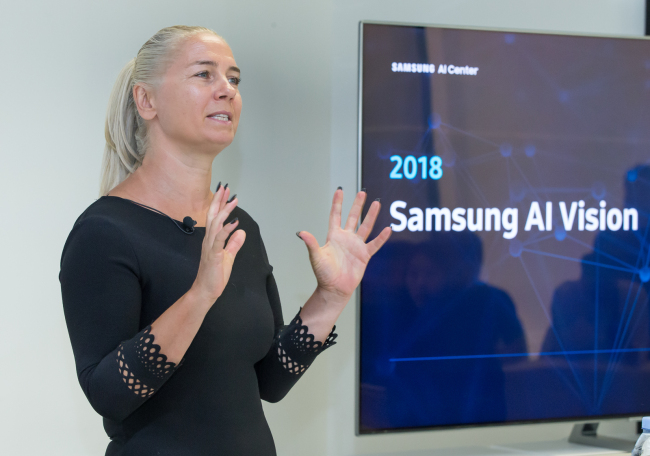Artificial intelligence is one of the areas where Samsung is investing heavily. The company sees it as a future growth driver and has thus earmarked billions of dollars for investment in artificial intelligence. The company has set up AI Centers in five key locations across the globe to attract talent that will help establish its leadership in the field.
Professor Maja Pantic, research director at Samsung AI Center Cambridge, has said that Samsung will become a leader in the AI field by differentiating itself from other companies in this area with human-centric communication. What that means is that the company's AI will be able to understand users' emotions better.
Human-centric AI may establish Samsung's lead
The UK-based Samsung AI Center Cambridge is one of five such centers that the company is running. The others are based in Toronto, Silicon Valley, Moscow and Seoul. Pantic is one of the research leaders at the Cambridge center in addition to Andrew Blake from Microsoft. Her work is focused on affective and behavioral computing.
Samsung opted to open a center in Cambridge because of the region's storied history of mathematics and science in addition to being home to one of the best universities in the world. Samsung AI Center Cambridge primarily works on emotion recognition technologies and embedded AI that can work without the cloud. The aim is to engage artificial intelligence in human-like communication.
Pantic said during a press conference at Samsung Design Europe in London that the company's devices will seamlessly communicate with users and learn from them through screen, voice, vision and tactile features. She added that Samsung has a diverse set of AI technologies particularly computer vision and audio technologies. “Samsung could be the best in user-centric design of AI by interacting with users through devices,” the professor said.
That would require a detailed understanding of users' facial expression, gestures, gender, age, nationalities and cultural differences. By recognizing their facial expressions the AI would be able to predict what they want to do. Pantic said that this may help prevent mental illnesses like depression and dementia as subtle changes in users' faces could be recognized in addition to other behaviors.
Samsung's vision for AI is to ensure that the devices keep on learning and that they are always there for users without needing their intervention. “And the most important thing is to be always safe in terms of privacy,” she added.







